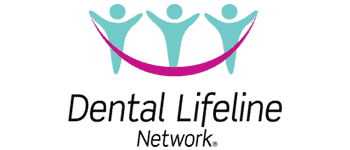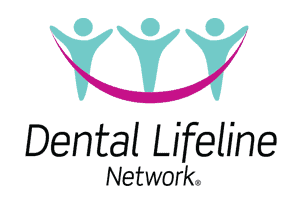Labs FAQ
What type of patients are accepted for the Donated Dental Services (DDS) Program?
Only people with disabilities or who are elderly or medically compromised and can’t afford care are accepted in the program.
What type of organization is Dental Lifeline Network?
DLN is a national non-profit and strategic partner of the ADA. It was created in 1975 to help people with disabilities to receive much needed care and has been operating the Donated Dental Services (DDS) program nationally since 1985.
Are applicants currently waiting for care through the DDS program?
Yes, nationally over 5,000 patients are waiting for treatment.
What’s Stopping You from
JOINING THE NETWORK?
Labs Frequently Asked Questions
Yes, more labs are needed.
A trained Case Manager/Coordinator screens every applicant before they are referred to your office. They remove barriers to care by ensuring the patient has reliable transportation, is committed to treatment, and will arrive on time and truly appreciate your help.
No, this program asks that you donate your treatment.
General dentists determine the treatment plan.
Case Managers/Coordinators work with specialists and the labs who also volunteer their services, many who you already work with.
No. Labs volunteer their services.
Very little paper work is required. We ask that you submit a one-page on-line or hardcopy document, indicating how much treatment you donated, time spent and services provided.
Great! Then you know that feeling of helping someone who truly needs it. The best part of DDS is that you pick WHEN you donate and WHO you treat—no working on someone else’s timeframe or patient roster, and no traveling to another location.
Most labs do. Although such charity work doesn’t get public notice, it needs to be quantified so state policymakers know exactly how much our profession does to help the people who fall through the cracks. Many of your pro-bono patients might even qualify for the DDS program.
Treating a DDS patient doesn’t just improve oral health, it can save someone’s life! Whether restoring a smile and self-confidence, or clearing up an infection that had delayed surgery, cancer treatment, dialysis, or organ transplant, your donation WILL be life-changing.
That’s ok, DDS can wait. But please sign up NOW so you’re ready when that time comes; the DDS Case Manager/Coordinator can check back with you in a month, a year, or any date you name. DDS will let you know about future needs so you can say yes when the time is right for YOU.
You decide how many cases you accept. The choice is entirely up to you.
Your DLN Coordinator will reach out to you when a case has a need for lab services that you may be able to assist with. You can specify the service types that your lab is able to provide, and can either accept or decline any case. You will always be contacted ahead of time to get prior approval for each case. You will never be given a case without your prior approval.
Dental offices will send all cases and prescriptions marked “Donated”. If you receive a case marked “Donated” and do not have paperwork for the case or did not agree to help this patient, please contact your coordinator before starting work.
If there are any issues or concerns with a patient or dentist office, please contact your coordinator immediately. Your coordinator is responsible for ensuring that your volunteer experience goes smoothly.
Patients are provided program guidelines that outline program expectations to ensure that you and the patient have a rewarding experience.
The goal of the program is to return the patients to good oral health, allowing them to reach an affordable maintenance level. DLN does not expect volunteers to donate ongoing dental maintenance to patients.


